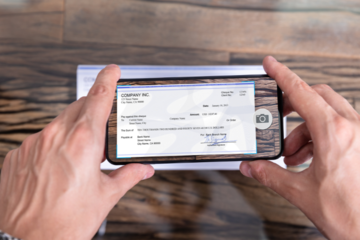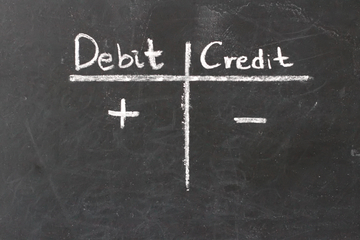According to a Bankrate survey, 56% of Americans would be unable to cover an unexpected $1,000 bill with their savings. Fortunately, your savings account isn't your only source of funding. You have several options, including a personal loan and lines of credit.
But when time is of the essence, personal loans may be the fastest, most cost-efficient, and easiest way to borrow. Let's take a closer look.
How Long Does it Take to Get a Personal Loan Approved?
The amount of time it takes to get a personal loan can vary based on a number of factors, especially the lender.
How Long Does It Take Online Lenders to Approve a Personal Loan?
Most online lenders offer a quick application process — even for applicants with bad credit. Some lenders may allow you to apply for a personal loan and receive the proceeds the next business day*.
How Long Does It Take Banks to Approve a Personal Loan?
Applying for a personal loan through a bank may be preferred if you already have an established relationship with the institution, such as a checking account or savings account. Bank-issued personal loans tend to take a little bit longer than online lenders:
Loan funding from a bank can range from one to five days.
Although most bank personal loans are funded between one to seven days, the time period may be up to two weeks if you must physically go into a branch to apply and/or close the loan. Another factor that can extend the time funding period is whether the bank uses direct deposit vs issues a physical check.
How Long Does It Take Credit Unions to Approve a Personal Loan?
Credit unions are not-for-profit organizations owned by the customers (called members) they serve. Instead of looking to turn a profit for shareholders, credit unions utilize the profits to offer member-owners lower lower interest rates on loans and higher rates on deposit accounts. While attractive rates are a bonus, credit unions can have the longest funding period for personal loans. In addition, credit unions tend to have the strictest criteria and requirements. For example, you must meet the unique membership requirements of a credit union to apply and access their lower rates.
How to Get a Personal Loan Quickly
Whether you choose an online lender, a bank, or a credit union, you can help speed up the process by having your ducks in a row. Here are a few tips to help you get a personal loan quickly.
Know Your Loan Amount
The first step in applying for a loan is to know the amount you actually need — and most importantly — can afford. Understanding this, in the beginning, can speed up the process. However, changing the amount of your loan midstream will do the opposite.
Review Your Credit Report
Make sure to review your credit report regularly to determine if there are errors you can proactively resolve. Fortunately, many free tools and resources allow you to monitor and remove errors:
You can also request your free credit report annually.
Apply Online
Applying for a personal loan online is substantially faster and more efficient than physically visiting a branch. Most online lenders use direct deposit as a funding method, while some banks and credit unions may issue physical checks, which can lengthen the process.
Review Your Application for Accuracy
Even though you may be in a rush to get approved for a personal loan, it's imperative to slow down and make sure your application is accurate. Failure to do so can result in a declined loan application. Then, you may have to reapply and provide additional documentation to substantiate any changes, which will lengthen the amount of time.
What Information Do I Need to Apply for a Loan?
Although every lender is different and may have unique criteria, certain information will be needed, such as: Your name, address, and phone number
Some lenders may have specific requirements. For example, credit unions may require you to provide proof of your membership eligibility. In most instances, online lenders will require the least information and offer the most frictionless application process.
Other Fast Loan Options
Whether your credit score isn't strong enough for a personal loan or you choose to go a different route, there are other fast loan options. In most cases, these loans do not require a credit check and will not impact your credit score. However, the following three options are the most expensive and should only be used as a last resort for quick cash.
Payday Loans
Payday loans are typically fast, short-term loans you pay back on your next pay date. While fast and easy to apply, payday loans generally have the highest interest rate of all lending options. Make sure to consider all of your options prior to choosing a payday loan.
Pawn Shop Loans
A pawnshop loan is a collateral-backed loan typically issued by a pawnbroker. With a pawnshop loan, you will use personal property — such as a TV, jewelry, gaming systems, etc. — as collateral to secure a loan. When you fully pay the loan, your collateral will be returned to you. But if you fail to pay the loan according to the terms, you risk surrendering the collateral to the pawnshop — who can then sell it for a profit. Pawnshop loans have interest rates higher than personal loans but lower than payday loans.
Car Title Loans
As the name suggests, car title loans are loans issued with your vehicle serving as collateral. When the loan's terms are satisfied, you will receive the title to your vehicle. It's important to understand that you will also pay interest and/or fees on the money you borrow. If you fail to repay the loan and meet the terms, the lender can keep your vehicle as collateral. Apply for Personal Loans with Fast Approval Through Integra Credit Integra Credit offers a fast application and virtually instant approval decisions. Best of all, you can choose how much cash you need and have money direct deposited into your account as early as the next business day*.
Sources
- How is a credit union different than a bank? | MyCreditUnion.gov
- Best Credit Monitoring Services of October 2023
- Pre-Qualification: What it Means, Special Considerations
- What Documents Are Required For A Personal Loan? | Bankrate
- Payday Loans and Cash Advances
- What Is a Pawnshop Loan? - Experian
- Car Title Loans



